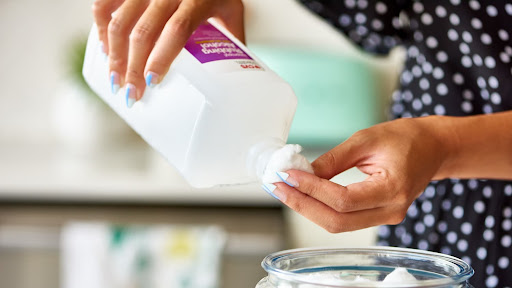Isopropyl Alcohol Market Development Overview, Growth Opportunities, Business Strategies and Forecast to 2030
Isopropyl alcohol is an isomer of propyl alcohol used in the manufacture of a wide variety of industrial and household chemicals. It is used in the manufacture of acetone and glycerin and is a readily available alcohol. It is also used in aftershave lotions, hand lotions, and other cosmetics. Water and propene are combined in a hydration reaction to produce isopropyl alcohol. Hydrogenating acetone also yields isopropyl alcohol.
Some key factors driving the growth of the isopropyl alcohol market include:
Cleaning and Disinfection: Isopropyl alcohol is commonly used as a cleaning and disinfecting agent in households, hospitals, and industries. Its ability to kill bacteria, viruses, and fungi makes it a popular choice for cleaning surfaces and medical equipment.
Pharmaceuticals: Isopropyl alcohol is used as a solvent in the pharmaceutical industry for manufacturing medicines, ointments, lotions, and other topical products. It helps dissolve and extract active ingredients from various substances.
Cosmetics and Personal Care: Isopropyl alcohol is used in the production of cosmetics, perfumes, and personal care products. It is often used as a solvent for fragrance oils and as an ingredient in antiperspirants, nail polish removers, and hair care products.
Chemical Intermediates: Isopropyl alcohol serves as a chemical intermediate in the production of various chemicals, including acetone, isopropyl esters, and glycerol.
Electronics and Semiconductor Industry: Isopropyl alcohol is used for cleaning electronic components and removing flux residues, dust, and other contaminants from circuit boards and delicate electronic equipment.
Automotive Industry: Isopropyl alcohol is used in the automotive industry for cleaning car parts, removing oils and greases, and as a fuel additive in gasoline.
Market Overview:
Isopropyl alcohol, also known as isopropanol or IPA, is a colorless, flammable chemical compound with a strong odor. It is a versatile solvent and is commonly used in various industries such as cleaning and disinfection, pharmaceuticals, cosmetics, personal care, electronics, and automotive.
Market Size and Growth:
The isopropyl alcohol market has experienced significant growth in recent years and is expected to continue growing. The market size is influenced by several factors, including increasing demand from end-use industries, rising awareness about cleanliness and hygiene, and technological advancements.
Key Drivers:
Several factors contribute to the growth of the isopropyl alcohol market:
a. Cleaning and Disinfection: Isopropyl alcohol's effectiveness in killing bacteria, viruses, and fungi makes it a preferred choice for cleaning and disinfection purposes in households, hospitals, and industries.
b. Pharmaceuticals: Isopropyl alcohol is widely used as a solvent in the pharmaceutical industry for the extraction of active ingredients and formulation of medicines, ointments, and lotions.
c. Cosmetics and Personal Care: Isopropyl alcohol finds application in the production of cosmetics, perfumes, and personal care products, acting as a solvent and as an ingredient in various formulations.
d. Chemical Intermediates: Isopropyl alcohol serves as a key intermediate for the synthesis of chemicals like acetone, isopropyl esters, and glycerol, which have diverse applications across industries.
e. Electronics and Semiconductor Industry: Isopropyl alcohol is widely used for cleaning and degreasing electronic components, circuit boards, and other delicate electronic equipment.
Regional Analysis:
The demand for isopropyl alcohol varies across regions. Some key regions contributing to the market growth include:
a. North America: The region has a significant market share due to the presence of major end-use industries and increasing awareness about cleanliness and hygiene.
b. Asia Pacific: The region is expected to witness substantial growth due to the rising industrial activities, growing population, and increased healthcare expenditure.
c. Europe: The market in Europe is driven by stringent regulations promoting cleanliness and hygiene, along with the presence of well-established pharmaceutical and cosmetic industries.
d. Rest of the World: Other regions, including Latin America, the Middle East, and Africa, are also witnessing growth opportunities driven by industrial development and increasing healthcare awareness.
Challenges and Constraints:
While the isopropyl alcohol market shows promising growth prospects, it also faces some challenges, including:
a. Volatility in Raw Material Prices: Fluctuations in raw material prices, particularly crude oil and natural gas, which are used in the production of isopropyl alcohol, can impact the market dynamics.
b. Environmental and Health Concerns: Isopropyl alcohol is a volatile organic compound (VOC) and may pose environmental and health risks if not handled or disposed of properly. This has led to increased scrutiny and regulations regarding its usage and emissions.
c. Availability of Alternatives: Some industries are exploring alternative solvents or cleaning agents that may pose a challenge to the growth of the isopropyl alcohol market.
Competitive Landscape:
The isopropyl alcohol market is highly competitive, with several key players operating globally. Some prominent companies involved in the production and supply of isopropyl alcohol include ExxonMobil Chemical Company, Royal Dutch Shell PLC, Mitsui Chemicals, Inc., Dow Chemical Company, LCY Chemical Corp., and INEOS AG, among others.



.png)
Comments
Post a Comment